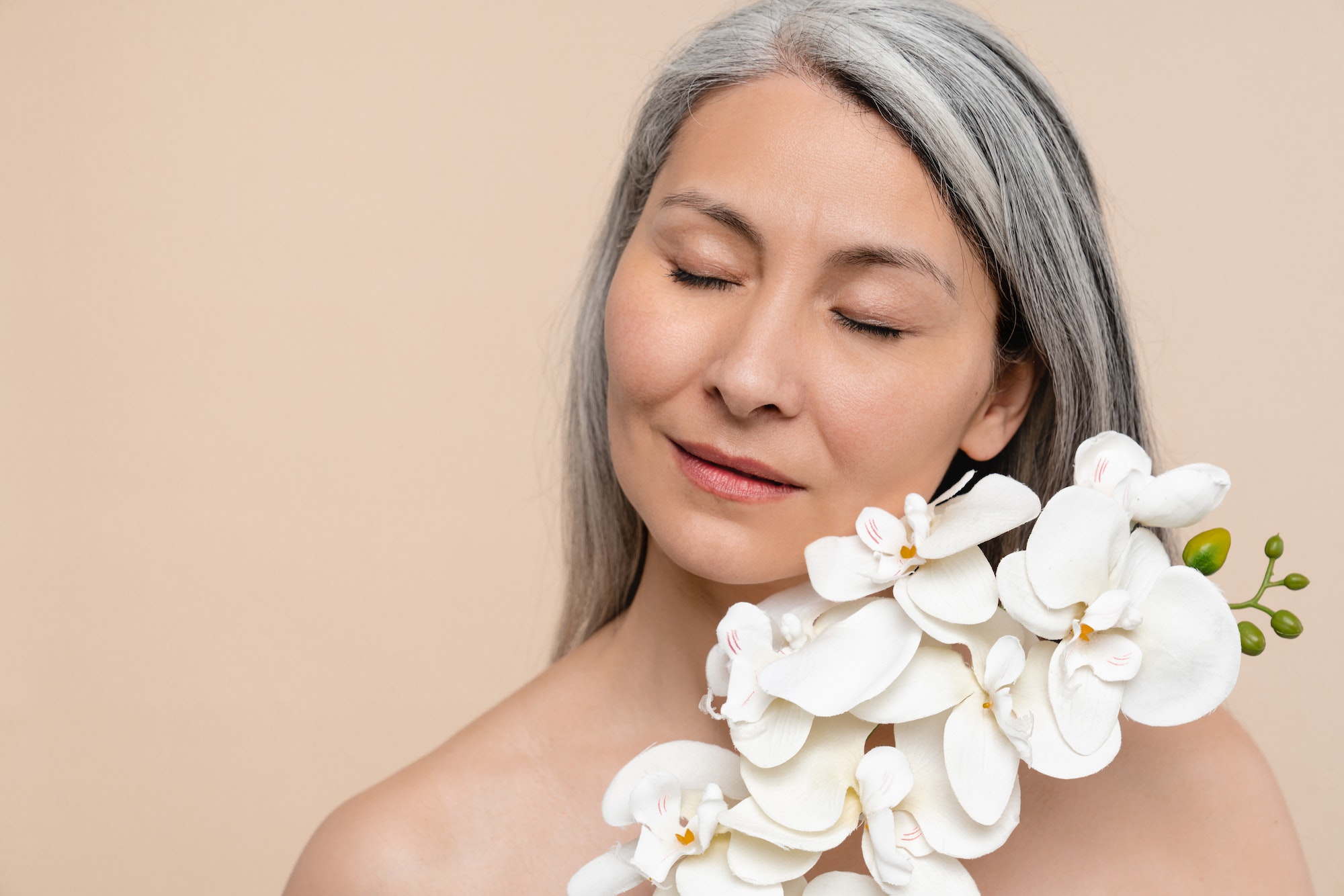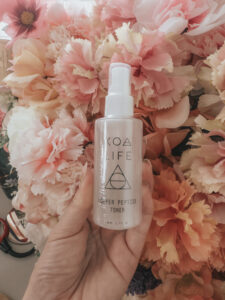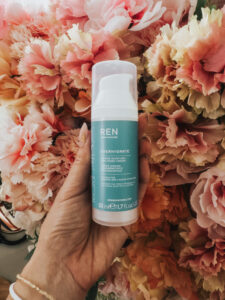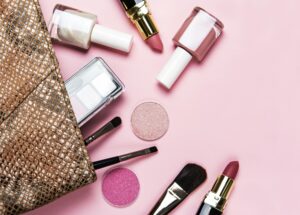
Image Source: Unsplash
Anti-aging products have become increasingly popular as more and more people seek ways to combat the signs of aging. But how do these products actually work? In this article, we will explore the science behind anti-aging skincare and delve into the ingredients that are commonly found in these products. From vitamin C to hyaluronic acid, we will discuss the effectiveness of each ingredient and provide you with the information you need to make informed choices when it comes to your skincare routine.
Understanding the Aging Process
Before we dive into the specifics of anti-aging products, it is important to understand the aging process and how it affects our skin. Aging is a natural process that we all go through, and it can be categorized into two types: intrinsic and extrinsic aging.
Intrinsic aging is the natural aging process that occurs over time. It is influenced by factors such as genetics and hormonal changes. As we age, our skin undergoes changes that result in the loss of elasticity and the formation of wrinkles.
Extrinsic aging, on the other hand, is caused by external factors such as sun exposure, pollution, and lifestyle choices. These factors can accelerate the aging process and lead to the development of fine lines, dark spots, and uneven skin tone.
The Structure of the Skin
To understand how anti-aging products work, it is important to have a basic understanding of the structure of the skin. The skin is made up of three layers: the epidermis, dermis, and subcutaneous tissue.
The outermost layer of the skin is called the epidermis, and it acts as a barrier to protect the underlying layers. The middle layer, known as the dermis, contains collagen and elastin fibers that provide strength and elasticity to the skin. The bottom layer, called the subcutaneous tissue or hypodermis, consists of fat cells that help to insulate the body and provide cushioning.
The Role of Collagen in Aging
Collagen is a protein that is essential for maintaining the youthful appearance of the skin. It provides structure and support, making the skin firm and smooth. However, as we age, the production of collagen decreases, leading to the formation of wrinkles and sagging skin.
Many anti-aging products target collagen production as a way to combat the signs of aging. However, it is important to note that collagen molecules are too large to penetrate the skin when applied topically. This means that products containing collagen may not be as effective as they claim to be.
Key Ingredients in Anti-Aging Products
Now that we have a basic understanding of the aging process and the structure of the skin, let’s delve into the key ingredients that are commonly found in anti-aging products. These ingredients have been scientifically studied and have shown promising results in reducing the signs of aging.
Vitamin C: A Powerful Antioxidant
Vitamin C, also known as ascorbic acid, is a potent antioxidant that has been proven to have a skin anti-aging effect. It works by increasing collagen production and inhibiting the enzymes that break down collagen. Vitamin C also has brightening properties, which can help to even out skin tone and reduce the appearance of dark spots.
Studies have shown that topical application of vitamin C can significantly improve the appearance of wrinkles and fine lines. It is important to note that the concentration of vitamin C in a product is crucial for its effectiveness. A concentration of at least 5% is recommended for noticeable results.
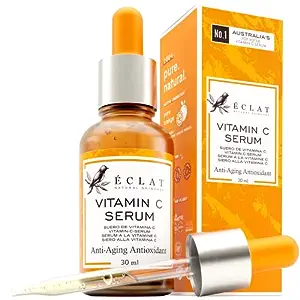
Vitamin C Face Serum
- Hyaluronic Acid, Retinol, & Vit E – Anti Aging Facial Brightening Serum for Skin Care – Timeless Pure Vitamin C Serum for Face Dark Spots, Vit C Serum Oil, Face Serum for Women
Niacinamide: A Multi-Benefit Ingredient
Niacinamide, or vitamin B3, is another ingredient that is commonly found in anti-aging products. It has multiple benefits for the skin, including reducing inflammation, improving skin elasticity, and enhancing the skin barrier function.
One of the key benefits of niacinamide is its ability to regulate melanin production, which can help to reduce the appearance of hyperpigmentation and even out skin tone. Studies have shown that topical niacinamide can also improve the appearance of fine lines and wrinkles.
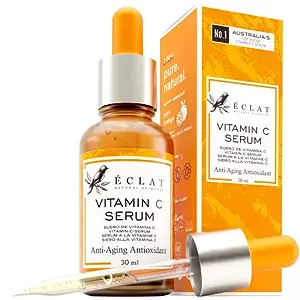
Naturium Niacinamide Face Serum
- 12% Plus Zinc 2%, Skin Complexion Treatment & Pore Minimizer, with Hyaluronic Acid & Vitamin E, 1 oz
Retinoids: The Gold Standard in Anti-Aging
Retinoids are derivatives of vitamin A and are considered the gold standard in anti-aging skincare. They work by increasing cell turnover, stimulating collagen production, and reducing the appearance of fine lines and wrinkles.
Retinol, a milder form of retinoid, is available over the counter and has been shown to have significant anti-aging effects. It is important to note that retinol can cause skin irritation, especially in the beginning stages of use. It is recommended to start with a lower concentration and gradually increase over time.
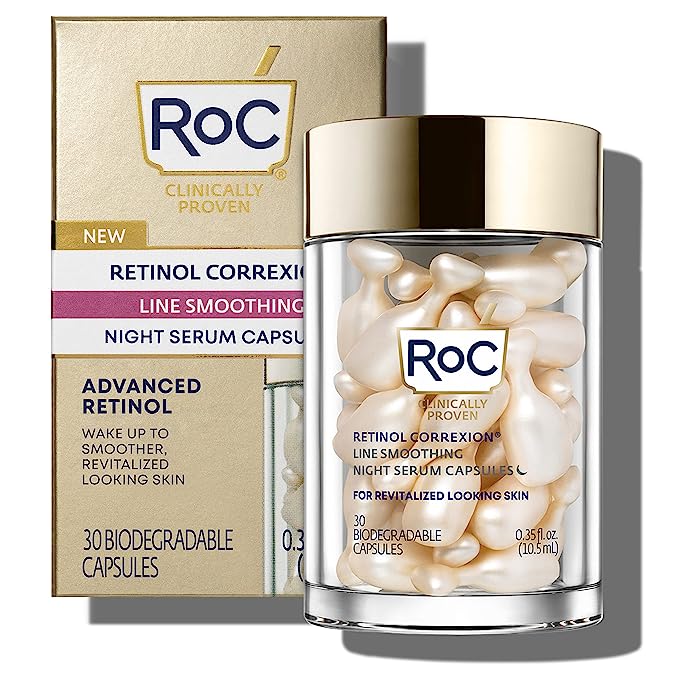
RoC Retinol Correxion Anti-Aging Wrinkle Night Serum
- Daily Line Smoothing Skin Care Treatment for Fine Lines, Dark Spots, Post-Acne Scars, 30 Individual Capsules, Unscented, 0.35 Fl Oz
Hyaluronic Acid: Boosting Skin Hydration
Hyaluronic acid is a naturally occurring substance in the skin that helps to retain moisture. It has the ability to hold up to 1000 times its weight in water, making it an excellent ingredient for hydrating the skin.
As we age, the levels of hyaluronic acid in the skin decrease, leading to dryness and the formation of wrinkles. Topical application of hyaluronic acid can help to replenish the skin’s moisture levels, resulting in a plumper and more hydrated appearance.
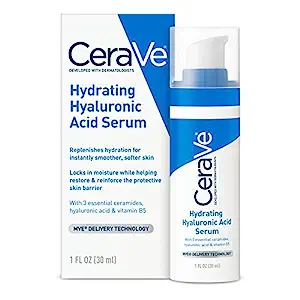
Cerave Hyaluronic Acid Serum
- Hyaluronic Acid Serum for Face with Vitamin B5 and Ceramides | Hydrating Face Serum for Dry Skin | Fragrance Free | 1 Ounce
Alpha-Hydroxy Acids: Exfoliating and Smoothing
Alpha-hydroxy acids (AHAs) are a group of naturally occurring acids that are commonly used in anti-aging products. They work by exfoliating the top layer of the skin, promoting cell turnover, and smoothing out roughness and uneven texture.
Glycolic acid and lactic acid are two examples of AHAs that are often used in skincare products. They have been shown to improve skin texture, reduce the appearance of fine lines, and even out skin tone. It is important to note that AHAs can increase sun sensitivity, so it is crucial to wear sunscreen when using products containing these ingredients.
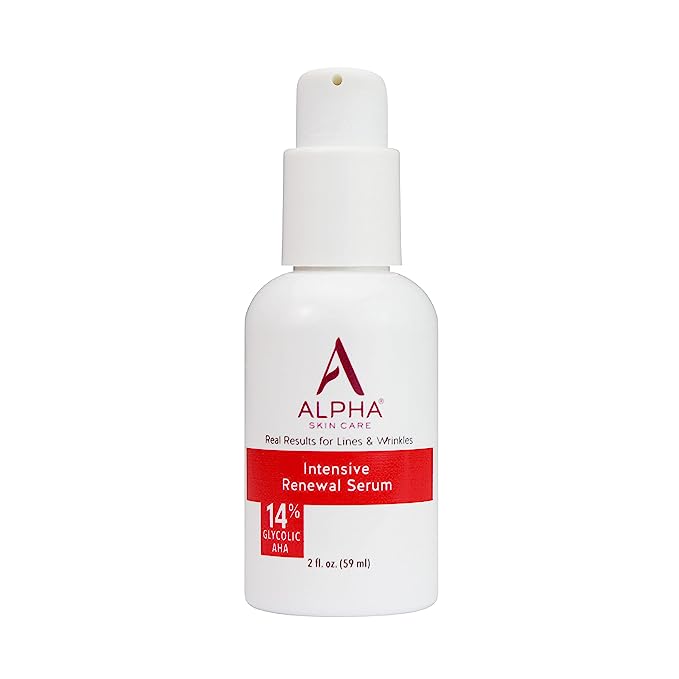
Alpha Skin Care Renewal Serum
- Concentrated with 14% Glycolic AHA, Intensive Rejuvenating Smoothing Serum, Gently Exfoliates, Hydrates, Evens Skin Tone For A Healthier Clear Complexion
Peptides: Stimulating Collagen Production
Peptides are short chains of amino acids that play a crucial role in stimulating collagen production. They have been shown to improve skin texture, reduce the appearance of wrinkles, and enhance overall skin elasticity.
One example of a peptide commonly used in anti-aging products is palmitoyl pentapeptide-3. Studies have shown that this peptide can stimulate collagen production, resulting in firmer and smoother skin.
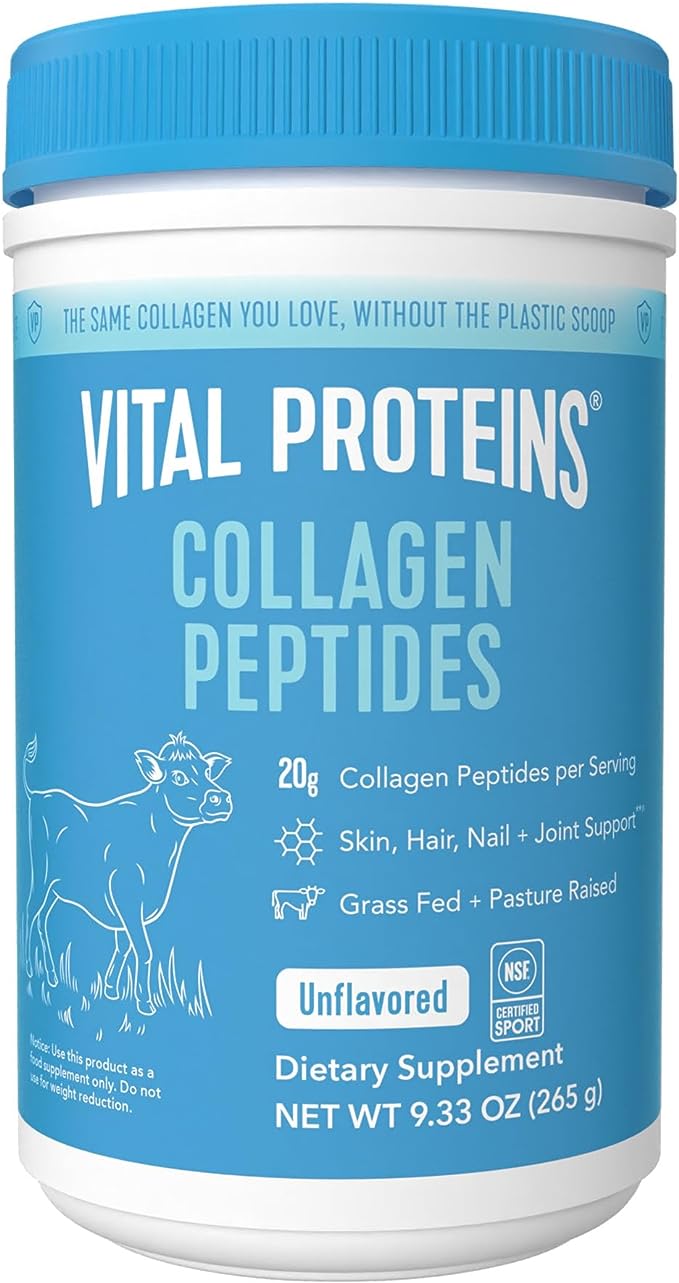
Vital Proteins Collagen Peptides Powder
- Promotes Hair, Nail, Skin, Bone and Joint Health, Unflavored 9.33 OZ
The Importance of Sun Protection
While anti-aging products can help to reduce the signs of aging, it is important to remember that prevention is always better than cure. The primary cause of extrinsic aging is sun exposure, so it is crucial to protect your skin from harmful UV rays.
Wearing sunscreen daily with a minimum SPF of 30 is essential for maintaining youthful-looking skin. It is also important to seek shade, wear protective clothing, and avoid prolonged sun exposure, especially during peak hours.
Conclusion
In conclusion, anti-aging products can be effective in reducing the signs of aging when used correctly and consistently. Ingredients such as vitamin C, niacinamide, retinoids, hyaluronic acid, alpha-hydroxy acids, and peptides have been scientifically proven to have anti-aging benefits.
When incorporating these products into your skincare routine, it is important to start slowly and gradually increase usage to minimize any potential skin irritation. It is also crucial to wear sunscreen daily and practice sun protection measures to prevent further damage to the skin.
Remember, while anti-aging products can help to improve the appearance of your skin, maintaining a healthy lifestyle, eating a balanced diet, and getting adequate rest are also important factors in achieving youthful-looking skin.

